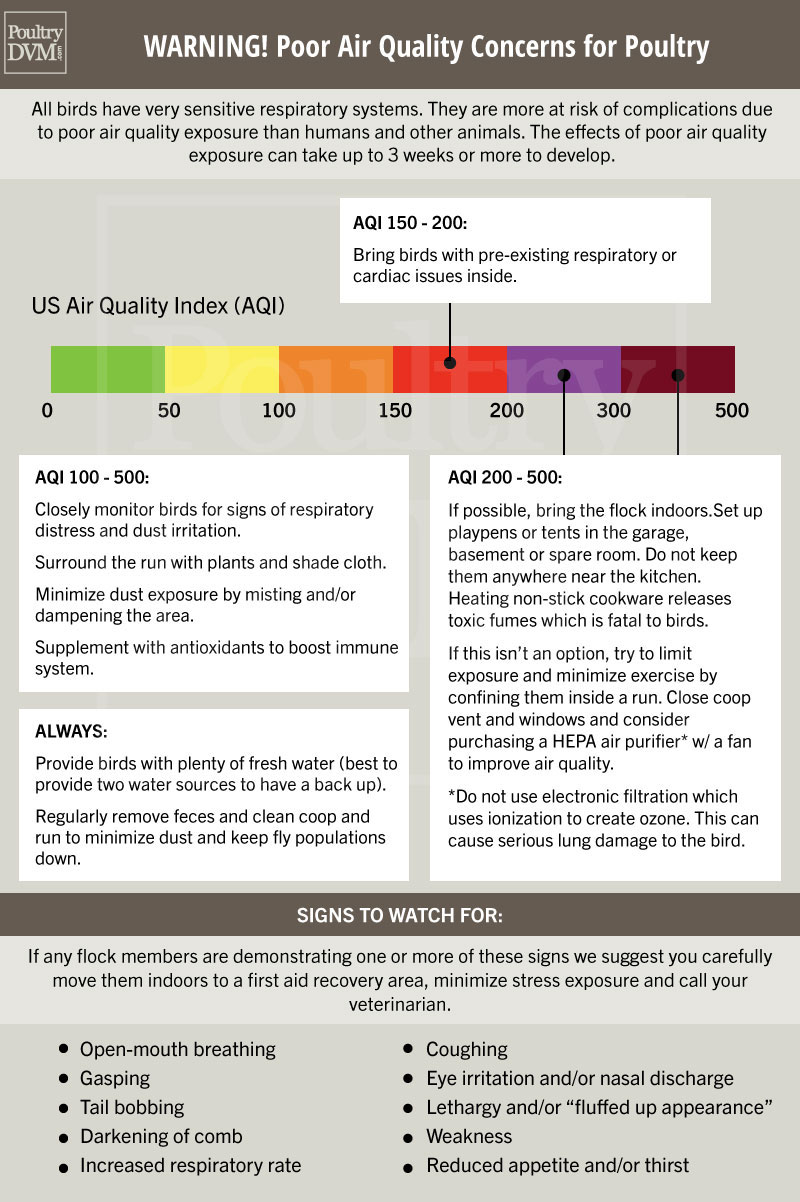Poor Air Quality Concerns for Chickens
Added June 9, 2023
WARNING! There are air quality alerts throughout portions of the United States and Canada due to wildfires for the next 24-48 hours. Air quality is measured using the US Air Quality Index (AQI). It is based on a scale from 0 to 500.
Birds have very sensitive respiratory systems. They are more at risk of complications due to poor air quality exposure than humans and other animals. The effects of exposure to poor air quality can take up to 3 weeks for signs to develop.
AREAS W/ AQI OF 200 & ABOVE
- If possible, try to bring your flock indoors. Set up playpens or tents in the garage, basement, or spare room. Do not keep them anywhere near the kitchen. Heating non-stick cookware releases fumes which are toxic to birds.
- If this isn't an option, try to limit the bird's exposure and minimize exercise by confining them inside the run. Close coop vent and windows and think about purchasing a HEPA air purifier (ideally with a fan) to improve air quality.
**HEPA air purifiers should be certified and utilize mechanical filtration. Do not use electric filtration which uses ionization to create ozone. This can cause serious lung damage to the bird.
AREAS W/ AQI OF 150 - 200:
- Bring birds with pre-existing respiratory or cardiac issues inside.
AREAS W/ AQI OF 100 & ABOVE:
- Closely monitor flock for signs of respiratory distress and dust irritation.
- Minimize dust exposure by misting/dampening the area.
- Surround the run with plants and a shade cloth.
- Supplement with antioxidants to boost immune system (Vitamin C and E, Grape seed extract, Omega 3 fatty acids).
ALWAYS:
- Provide birds with plenty of fresh water (at least two water sources is favorable to have a backup).
- Regularly remove feces and clean the coop and run to minimize dust and keep fly populations down.
SIGNS TO WATCH FOR:
- Open mouth breathing
- Darkening of comb
- Gasping
- Coughing
- Increased respiratory rate
- Tail bobbing
- Lethargy
- Weakness
- Loss of appetite and thirst
- Eye irritation and nasal discharge
Carefully relocate any birds demonstrating one or more of these signs indoors to a low stress recovery area and call your veterinarian.
Would you like to use this graphic or commission us to design one for your organization? Email us at info@poultrydvm.com.
